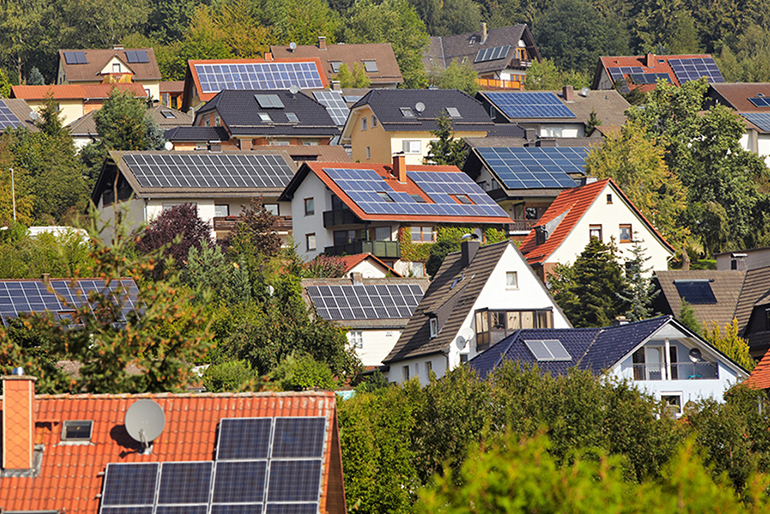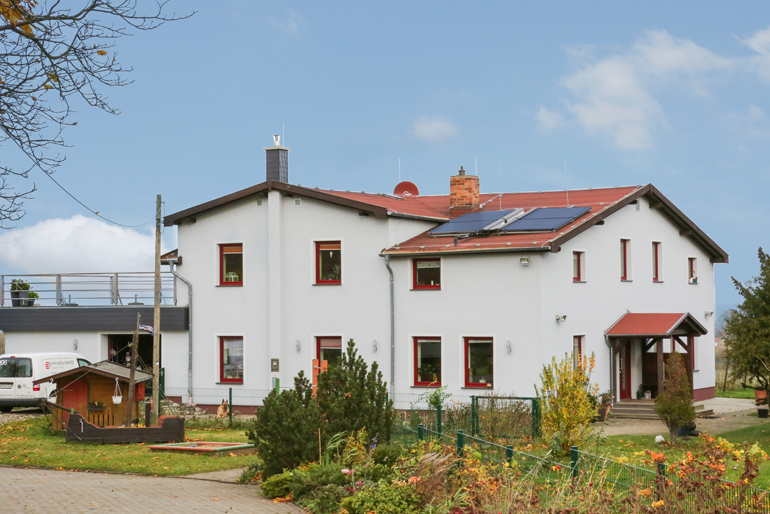Treibhausgasreduzierte Brennstoffe in den USA
In den USA werden rund sieben Millionen Haushalte mit Heizöl versorgt. Somit bilden der US-amerikanische und der deutsche Heizölmarkt weltweit die größten Absatzgebiete. Auf beiden Seiten des Atlantiks ergibt sich daher eine große Verantwortung, den Treibhausgasausstoß der ölbeheizten Haushalte als Beitrag zum Klimaschutz zu reduzieren. Maßgeblich werden diese Aktivitäten in den USA von der nationalen Heizölorganisation „National Oilheat Research Alliance (NORA)“ vorangetrieben.
Erschienen: 7. August 2020 Lesezeit: 5 Minuten

Zur Förderung des Knowhow-Transfers und Intensivierung des Erfahrungsaustausches richtet NORA gemeinsam mit dem europäischen Heizölverband Eurofuel in diesem Jahr erstmalig eine virtuelle Konferenz zum Thema Zukunft flüssiger Energieträger aus. An vier aufeinanderfolgenden Mittwochen (19.08. – 09.09.20) jeweils von 15 bis 18 Uhr MESZ werden Repräsentanten aus Politik, Wirtschaft und Wissenschaft aktuelle Projekte, Studien und Pläne vorstellen, wie zukünftig flüssige Energieträger einen Beitrag zum Erreichen der Klimaschutzziele leisten können.
Im exklusiven Interview mit dem Future-Fuels-Blog verrät NORA-Präsident John Huber, welche Schwerpunkte im Hinblick auf treibhausgasreduzierte flüssige Energieträger in den USA derzeit verfolgt werden und warum es sich lohnt, an der Konferenz teilzunehmen. Hier finden Sie weitere Informationen zu der Konferenz und die Möglichkeit, sich anzumelden.
Nachgefragt bei Nora Präsident John Huber
What role can low carbon fuels play in climate protection?
The economic activity of a high percentage of our economy are linked to carbon fuels, and heat, electricity and transportation represent almost 46 percent of emissions. So, if we do not address fuels, we are essentially not addressing global warming, which is not an acceptable answer. Thus, we must have lower carbon fuels. And as a liquid fuel supplier, if we cannot come up with the right low carbon answer, we are essentially conceding the battle. – How is the state of development and implementation of projects in the field of low carbon fuels in the United States? NORA believes we have made significant headway in the development and implementation of traditional biofuels, such as biodiesel. We have also looked at several novel fuels such as pyrolysis oils, ethyl levulinate, and algae based biofuels. We are very comfortable that these fuels can be used in heating equipment safely and efficiently. However, we also believe that widespread acceptance and uses at high levels will be necessary on a timeline that may make some in the industry uncomfortable. However, biofuels are an acceptable option, and we should be ready to use high percentages as state and federal policy require.
What are currently your main activities regarding low carbon fuels?
NORA is working in a number of areas that you have asked about. Our lab in New York, headed by Dr. Butcher, spends an extensive amount of time evaluating low carbon fuels. We have worked on biodiesel, renewable diesel pyrolysis oils, and ethyl levulinate. Most of our effort is concentrated on biodiesel, since it is available in the states where we operate. NORA has worked to develop a pathway and understanding of how biodiesel will behave as we blend at higher and higher amounts. We have worked with each of the burner manufacturers to develop information and technical limits on what the higher blends are.
We have also done several projects to understand how biodiesel can be used to reduce our carbon footprint, and how it compares to our competitors, natural gas and electricity. And we are now completing a study on how high blends will impact the distribution system and whether there will be adequate supply.
NORA has also done a great deal of customer outreach. We have done radio ads and maintain an active online marketing presence regarding biofuels.
And finally, in the US, most service is associated with fuel dealers. So, we have developed education platforms for service professionals on why the industry has to move to a low carbon fuel, and and what will need to be adjusted with higher blends, and are there actual maintenance concerns. To further understand some of these issues, NORA does periodic surveys of the maintenance industry on how biodiesel at high blends may be affecting performance. Generally, the survey recipients indicate it is a net positive. However, those who are not currently using it have a lot of false information that must be dispelled.
Why does your organization, NORA, organize a conference on low carbon fuels together with Eurofuel?
Over the past years, we have had notable guests from England, and Germany attend our technical conferences. Additionally, we generally have a team that goes to Europe once a year. Covid-19 prevented any of these activities from occurring. So, we reached out to Eurofuel with the desire of holding a joint meeting. Two primary reasons, we need technical changes in our industry, and sharing ideas and what is happening in the world’s largest markets is essential to speed up development. Second, public policy changes on the environment in recent years have preceded actions in the United States. So, our interchange with Europe often provides a preview of the future. With this preview, we have additional time to respond.
What can attendees expect from the conference?
The speakers are thoughtful people who are responding and spending substantial sums to provide a low carbon future for the heating industry. We will see compelling data and information about new fuels, and engineering developments which make our equipment safer and more efficient. We hope attendees become more aware of their future, their role in the future, and step forward to advance the goals and requirements for us.
Weitere Themen




0 Kommentare